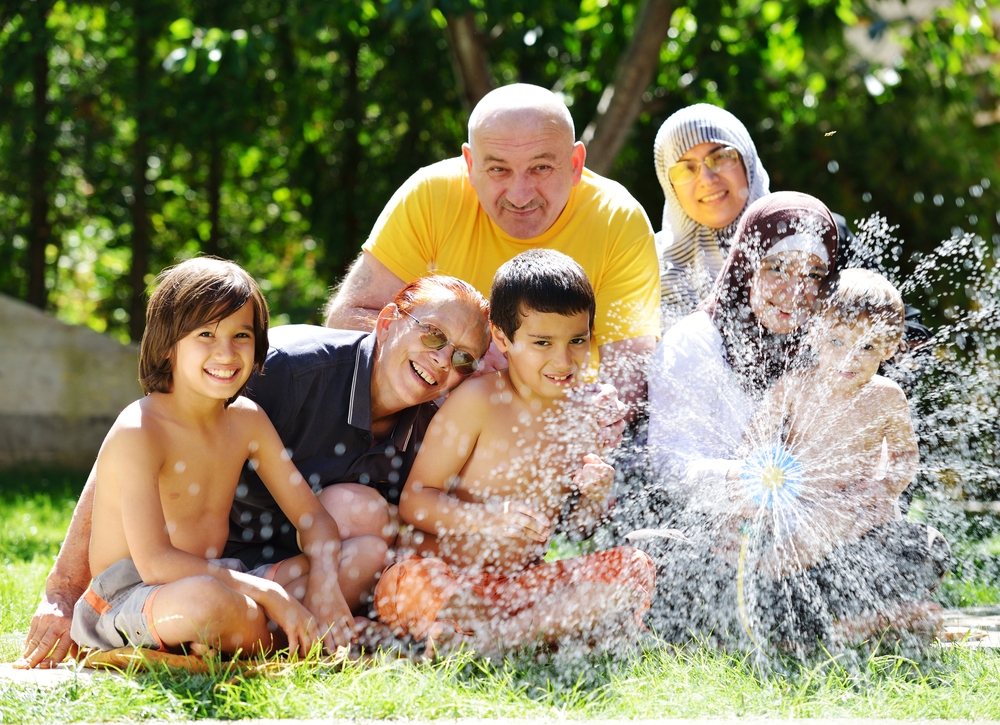I grew up in a small rural village of a developing country during the 1950s and 1960s within a wider ‘extended’ family environment amidst many village aunties and uncles. I had a wonderfully happy childhood with enormous freedom but traditional boundaries. Fast forward 30 years, my wife and I raised our four children on our own in cosmopolitan London in the 1980s and 1990s. Although not always easy, we had a wonderful experience to see them grow as adults. Many years and life experiences later, as grandparents, we see how parenting has changed in the current age of confusion and technology domination.
While raising children is ever joyous for parents, external factors such as rapidly changing lifestyles, a breath-taking breakdown of values in modern life, decline of parental authority and the impacts of social media have huge impacts on modern parenting.
Recently, my wife and I decided to undertake the arduous task of looking after our three young grandchildren – a 5½-year old girl and her 2-year old sibling brother from our daughter, plus a 1½-year old girl from our eldest son – while their parents enjoyed a thoroughly deserved week-long holiday abroad. My wife, who works in a nursery, was expertly leading this trial. I made myself fully available to support her. Rather than going through our daily experiences with them for a week, I highlight here a few areas vis a vis raising children in this day and age and the role of grandparents. The weeklong experience of being full time carers brought home with new impetus some universal needs in parenting. I must mention that handling three young grandchildren for a week is not a big deal; it was indeed a sheer joy to be with these boisterous, occasionally mischievous, little kids so dear to us!
- Establish a daily routine and be consistent: Both parents are busy now-a-days earning a livelihood and maintaining their family life, especially in this time of austerity. As children grow, and they grow fast, they naturally get used to the daily parental routine, if it is consistent. This is vital for parents’ health as they need respite in their daily grind. For various practical reasons the routine may sometimes be broken, but this should be an exception rather than a norm. After a long working day parents both need their own time and rest before going to sleep. Post-natal depression amongst mums is very common in situations where there is no one to help them or if the relationship between the spouses is facing difficulty and family condition uninspiring.
Keep supporting MuslimMatters for the sake of Allah
Alhamdulillah, we're at over 850 supporters. Help us get to 900 supporters this month. All it takes is a small gift from a reader like you to keep us going, for just $2 / month.
The Prophet (SAW) has taught us the best of deeds are those that done consistently, even if they are small.
Click here to support MuslimMatters with a monthly donation of $2 per month. Set it and collect blessings from Allah (swt) for the khayr you're supporting without thinking about it.
In our trial case, we had some struggles in putting the kids to sleep in the first couple of nights. We also faced difficulties in the first few mornings when our grandson would wake up at 5.00am and would not go back to sleep, expecting one of us to play with him! His noise was waking up his younger cousin in another room. We divided our tasks and somehow managed this until we got used to a routine towards the end of the week.
- Keep children away from screens: Grandparents are generally known for their urge to spoil their grandchildren; they are more relaxed about discipline, preferring to leave that job to the parents. We tried to follow the parents’ existing rules and disciplinary measures as much as possible and build on them. Their parents only allow the children to use screens such as iPads or smartphones as and when deemed necessary. We decided not to allow the kids any exposure to these addictive gadgets at all in the whole week. So, it fell on us to find various ways to keep them busy and engaged – playing, reading, spending time in the garden, going to parks or playgrounds. The basic rule is if parents want their kids to keep away from certain habits they themselves should set an example by not doing them, especially in front of the kids.
- Building a loving and trusting relationship: From even before they are born, children need nurture, love, care and a safe environment for their survival and healthy growth. Parenting becomes enjoying and fulfilling when both parents are available and they complement each other’s duties in raising the kids. Mums’ relationship with their children during the traditional weaning period is vital, both for mums and babies. During our trial week we were keenly observing how each of the kids behaved with us. We also observed the evolution of interesting dynamics amongst the three; but that is a different matter. In spite of occasional hiccups with the kids, we felt our relationship was further blossoming with each of them. We made a habit of discussing and evaluating our whole day’s work at night, in order to learn things and plan for a better next day.
A grandparent, however experienced she or he may be, can be there only to lend an extra, and probably the best, pair of hands to the parents in raising good human beings and better citizens of a country. With proper understanding between parents and grandparents and their roles defined, the latter can be real assets in a family – whether they live under the same roof or nearby. Children need attention, appreciation and validation through engagement; grandparents need company and many do crave to be with their own grandchildren. Young grandchildren, with their innate innocence, do even spiritually uplift grandparents in their old age.
Through this mutual need grandparents can transfer life skills and human values by reading with them, or telling them stories or just spending time with the younger ones. On the other hand, in our age of real loneliness amidst illusory social media friends, they get love, respect and even tender support from their grandchildren. No wonder the attachment between grandparents and grandchildren is often so strong!
In modern society, swamped by individualism and other social ills, raising children in an urban setting is indeed overwhelming. We can no longer recreate ‘community parenting’ in the traditional village environment with the maxim “It needs a village to raise a child’, but we can easily create a productive and innovative role for grandparents to bring about similar benefits.























